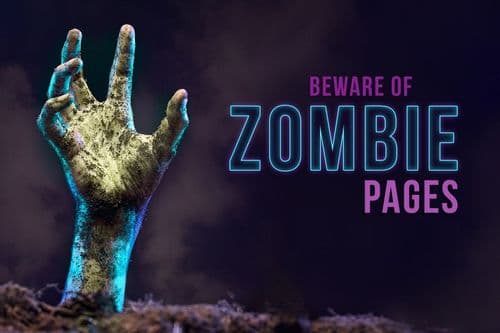From an Integrated Marketing Agency’s Perspective
When sales and marketing teams are overloaded, it might be appealing to look for an “easy button.” Tools that offer all-in-one answers to your marketing challenges seem like the perfect way to magically solve them all at once.
The fact that tools like HubSpot are integrated in a package that helps you easily create systems and processes for creating, editing, and updating your digital presence is often perfect for organizations that are starting from ground zero or living with antiquated websites.
HubSpot is, in fact, a great solution for many companies, and boasts tens of thousands of existing customers who use it as a one-stop, comprehensive platform because it fits their needs.
HubSpot’s tools for developing website pages and forms, marketing automation, email marketing, social posting, even CRM and sales, is a great source for an all-in-one marketing software.
The platform and its promise of being the tool for inbound marketing appear to be what every business needs to succeed in digital marketing.
However, just as in clothing, one size doesn’t fit all. Each piece of marketing technology should be evaluated on whether it is the best answer to meet your company’s unique marketing goals.
Sometimes, software that says it can do everything doesn’t work quite as well as software built just for a particular need.
But if something is built for every business, is it built for any business at all?
Is HubSpot Best at Every Marketing Task?
As hard as marketing automation providers try to convince you, digital marketing software is not magic. It takes just as much, or even more, effort as traditional marketing. Unfortunately, some vendors may make it seem like all you need to do is purchase one solution and the leads will start rolling in.
But, there’s no wand to wave that solves all marketing problems, and no fairy dust that makes the hard work of identifying, connecting, and delighting your target audience easy.
Proposing Inbound Marketing
It needs to be the right fit for you, not just the agency. No one product is best at everything. When HubSpot inbound marketing agencies get hitched to one solution, they’re making a choice for their clients. They’ve already decided that one piece of software is all that’s needed to fix the unique challenges of every business they encounter.
That’s not the case. HubSpot is a great solution – for some businesses. But certainly not all.
What works best for one company won’t work 100% of the time for another. Every organization, and situation, are unique.
It’s not about the software. It’s about the strategy. And the execution.
Businesses need a fully thought-out strategy for integrated marketing that uses the best approach for each target audience, and then applies the best tools and platforms to reach them.
Integrated means we aren’t married to inbound marketing as the be-all, end-all tactic for developing and nurturing leads. Element uses the combination of tactics that reach the right audience with the right message, persuading them to act.
Integrated Marketing includes content creation for search engine optimization as promoted by inbound marketing. It also incorporates other devices as needed – paid digital advertising, offline, interactive experiences, and more – coordinated and focused for maximum effect.
We back it all up with deep analysis on how users are reacting to and interacting with our clients’ content for continuous optimization.
HubSpot is Great, Not a Unique Inbound Marketing Approach
The tools that HubSpot offers are not exclusive to its platform. Many software products can help build website pages, landing pages, and send emails. Element works with many of them every day – Marketo, SharpSpring, Act-On, ClickDimensions, Salesforce Marketing Cloud, and more. At their core, in fact, they might look just about identical to each other. And in some ways, that’s true.
In fact, sometimes an all-in-one system isn’t what’s required. Best-of-suite solutions are good at everything, but sometimes you need single products that are the best at their given task.
If you need website pages and landing pages that are easy to create, for example, your ideal solution could be a custom-developed WordPress website. For CRM, SalesForce or another purpose-built product might fit your organization’s needs better than HubSpot.
HubSpot Strengths and Weaknesses
| HubSpot is Great For: | But Not as Great For: |
|---|---|
| Ease of Use: If set up correctly, it can be simple to create and edit website pages, emails, landing pages, and forms – provided they fit into a template your provider has already created. | Total Customization: To make creating and editing pages even easier, especially for more complex layouts, other solutions such as a custom CMS like WordPress or Drupal work better. |
| Community: There are a lot of HubSpot users out there, and resources are available that cover the basics of use and specific how-to topics for solving day-to-day problems. | Deeper Solutions: For questions or ideas that don’t have a quick fix, it can be harder to get the answers you need, as most HubSpot users are users, not developers or experts. |
| Basic Reporting: If your reporting needs run along the lines of “who visited our website” and “who filled out our forms,” then HubSpot has you covered with its built-in reports. | In-Depth Analysis: For measurement needs that dive into specifics on website user behavior, performance of interactive content, or sales metrics such as time-to-lead, lead quality, or repeat customer and visitor analysis, HubSpot’s simplicity quickly becomes a drawback. |
| Marketing Automation: HubSpot’s built-in visual tools for creating email sends with timers, and branches that can react to different visitor behaviors. | CRM Integration: With all the great data about leads being collected in HubSpot, it can be difficult to get it into your company’s existing CRM and ERP systems in a usable way. |
Why Are HubSpot Partners So Dedicated to Selling HubSpot?
So why are some agencies heavily promoting HubSpot? As the old saying goes, “if all you have is a hammer, every problem looks like a nail.” HubSpot inbound marketing agencies have a powerful tool to offer potential clients, no doubt. And, that dedication provides them with a great deal of support from HubSpot to help sell and implement their software. But while that may be great for the partner agency, is it best for the client?
Unfortunately, some agencies are resellers first, strategic partners second.
If you look on the Element website, you won’t find an official “HubSpot Partner” badge anywhere. In fact, we aren’t a partner for any one marketing tool or platform.
Clients Come First
We’re a partner for our clients, not our software providers. Our agnostic approach to marketing software means that we focus on the right tool for the right job, every time. Above all, we focus on outcomes for our clients, based on extensive research to formulate a strategy.
Only then do we evaluate the best mix of marketing tactics to reach those outcomes, and the software solutions that work best for the overall integrated marketing program.
Our mix of services for a client might include one, all, or a mix of public relations, out-of-home, direct mail, paid digital advertising, website design, online and offline lead generation, and more.
We’re not interested in being featured at a marketing automation platform’s annual conference as a “great vendor” or seeking navel-gazing marketing industry awards.
What energizes us to come into work every day is doing great work for our clients, that strengthens their bottom line. Want to chat more? Stop by one of our offices near Green Bay or Appleton, or email us.








